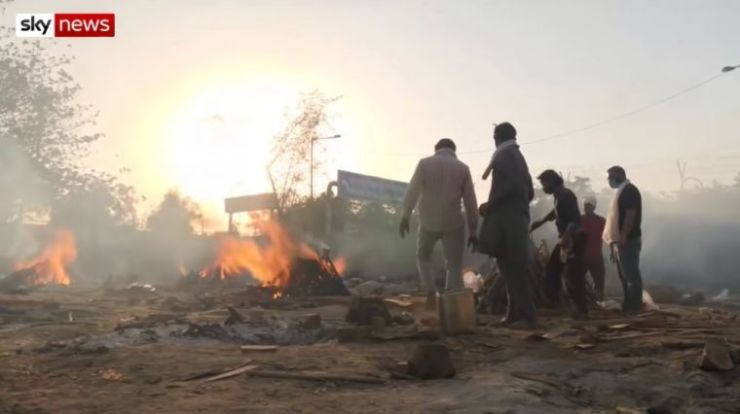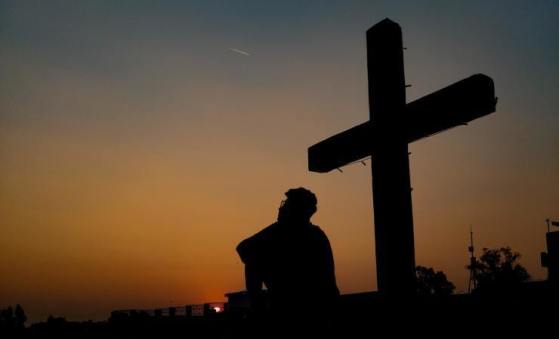
Tearfund's Country Director for India has revealed the scale of the challenge facing the country as it spirals into a deeper COVID crisis.
In the brutal second wave, hundreds of thousands of people are being diagnosed with COVID-19 and at least 2,000 are dying from the virus every day across India.
Prince David, who heads up Tearfund's operations in India said he is afraid to answer his phone in case it is another call to tell him someone he knows has died.
He described an atmosphere of fear across the country.
"Every time I pick up my phone, I am very fearful. Since nine o'clock this morning, I have answered my phone three times to hear that another of my friends has died," he said.
"People are in despair. It is tough. Even people who have been very courageous in other situations are saying 'I am scared this time and I don't know what's happening around me.'"
Horrific reports from the country tell of bodies being lined up on the streets ahead of mass cremations, and people being turned away from overwhelmed hospitals.
Medical oxygen, intensive care beds and medicine to treat COVID-19 are all reported to be in short supply.
David continued, "My friend told me earlier this week that the hospital his wife works in only had sufficient oxygen to last the next six hours."
Through local partners, Tearfund is providing food, water and counselling to migrant workers left destitute by the economic fallout of lockdown.
It is also trying to help people continue earning a living during the crisis.
"We are helping those who have walked in desperation back to their villages to increase their agricultural production and find places to sell," he said.
"We are also creating jobs in new infrastructure projects that will benefit the community. It's about restoring people's dignity and increasing their income long term."
The scale of the second wave is making that harder, and communities will need long-term support, he admitted.
"My concern is that our plans to hand over to communities the management of their own sustainable development will be delayed," he said.
"The progress they have made to increase their resilience since the first lockdown is being frustrated by the second wave.
"Farmers who grow and sell produce in the market are telling us that they are not earning enough because there are few buyers. The cash economy has been massively affected and it's not going to recover in the short term."
Despite the crisis that continues to grip the country, David said he drew "hope" from the "aspirational" character of Indians.
"After major disasters, we have seen communities build their resilience, go back to life and continue from there," he said.
"It is going to take time. It takes a lot of effort. It takes a lot of investment.
"Once the cases of coronavirus go down, people will spring back. They are going to go back to work. They are going to restart their businesses.
"Right now, it's a very difficult phase."




